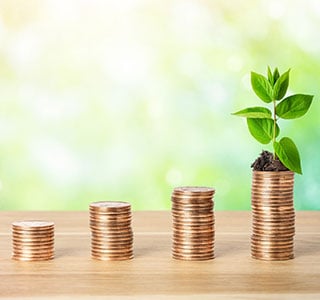-
Business valuations
We offer expert valuation advice in transactions, regulatory and administrative matters, and matters subject to dispute – valuing businesses, shares and intangible assets in a wide range of industries.
-
Capital markets
You need corporate finance specialists experienced in international capital markets on your side if you’re buying or selling financial securities.
-
Complex and international services
Our experience of multi-jurisdictional insolvencies coupled with our international reputation allows us to deliver the best possible outcome for all stakeholders.
-
Corporate insolvency
Our corporate investigation and recovery teams can help you manage insolvency situations and facilitate the best outcome.
-
Debt advisory
An optimal funding structure for your organisation presents unprecedented opportunities, but achieving this can be difficult without a trusted advisor.
-
Expert witness
Our expert witnesses analyse, interpret, summarise and present complex financial and business-related issues which are understandable and properly supported.
-
Financial models
A sound financial model will help you understand the impact of your decisions before you make them. Talk to us about our user-friendly models.
-
Forensic and investigation services
We provide investigative accounting and litigation support services for commercial, matrimonial, criminal, business valuation and insurance disputes.
-
Independent business review
Is your business viable? Will it remain viable in the future? A thorough independent business review can help your organisation answer these fundamental questions.
-
IT forensics
Effective ESI analysis is integral to the success of your business. Our IT forensics experts have the technical expertise to identify, preserve and interrogate electronic data.
-
Mergers and acquisitions
Grant Thornton provides strategic and execution support for mergers, acquisitions, sales and fundraising.
-
Raising finance
Raising finance - funders value partners who can deliver a robust financial model, a sound business strategy and rigorous planning. We can guide you through the challenges that these transactions can pose and help you build a foundation for long term success once the deal is done.
-
Relationship property services
Grant Thornton offers high quality independent advice on the many financial issues associated with relationship property from considering an individual financial issue to all aspects of a complex settlement.
-
Restructuring and turnaround
Grant Thornton’s restructuring and turnaround service capabilities include cash flow, liquidity management and forecasting; crisis and interim management; financial advisory services to companies and parties in transition and distress
-
Transaction advisory
Our depth of market knowledge will steer you through the transaction process. Grant Thornton’s dynamic teams offer range of financial, commercial and operational expertise.
-
Virtual asset advisory
Helping you navigate the world of virtual currencies and decentralised financial systems.
-
Corporate tax
Grant Thornton can identify tax issues, risks and opportunities in your organisation and implement strategies to improve your bottom line.
-
Employment tax
Grant Thornton’s advisers can help you with PAYE (payroll tax), Kiwisaver, fringe benefits tax (FBT), student loans, global mobility services, international tax
-
Global mobility services
Our team can help expatriates and their employers deal with tax and employment matters both in New Zealand and overseas. With the correct planning advice, employee allowances and benefits may be structured to avoid double taxation and achieve tax savings.
-
GST
GST has the potential to become a minefield and can be expensive when it goes wrong. Our technical knowledge can help you minimise the negative impact of GST
-
International tax
International tax rules are undergoing their biggest change in a generation. Tax authorities around the world are increasingly vigilant, especially when it comes to global operations.
-
Research and Development
R&D tax incentives are often underused and misunderstood – is your business maximising opportunities for making claims?
-
Tax compliance
Our advisers help clients manage the critical issue of compliance across accountancy regulations, corporation law and tax. We also offer business and wealth advisory services, which means we can provide a seamless and tax-effective offering to our clients.
-
Tax governance
Mitigate tax risks and implement best practice governance that will stand up to IRD scrutiny and audits.
-
Transfer pricing
Tax authorities are demanding transparency in international arrangements. We businesses comply with regulations and use transfer pricing as a strategic planning tool.
-
Audit methodology
Our five step audit methodology offers a high quality service wherever you are in the world and includes planning, risk assessment, testing internal controls, substantive testing, and concluding and reporting
-
Audit technology
We apply our audit methodology with an integrated set of software tools known as the Voyager suite. Our technology has been developed to produce quality audits that are effective and efficient.
-
Financial reporting advisory
Our financial reporting advisers have the expertise to help you deal with the constantly evolving regulatory environment.
-
Business architecture
Our business architects help businesses with disruptive conditions, business expansion and competitive challenges; the deployment of your strategy is critical to success.
-
Cloud services
Leverage the cloud to keep your data safe, operate more efficiently, reduce costs and create a better experience for your employees and clients.
-
Internal audit
Our internal audits deliver independent assurance over key controls within your riskiest processes, proving what works and what doesn’t and recommending improvements.
-
IT advisory
Our hands on product experience, extensive functional knowledge and industry insights help clients solve complex IT and technology issues
-
IT privacy and security
IT privacy and security should support your business strategy. Our pragmatic approach focuses on reducing cyber security risks specific to your organisation
-
Payroll assurance
Our specialist payroll assurance team can conduct a review of your payroll system configuration and processes, and then help you and your team to implement any necessary recalculations.
-
PCI DSS
Our information security specialists are approved Qualified Security Assessors (QSAs) that have been qualified by the PCI Security Standards Council to independently assess merchants and service providers.
-
Process improvement
As your organisation grows in size and complexity, processes that were once enabling often become cumbersome and inefficient. To maintain growth, your business must remain flexible, agile and profitable
-
Procurement/supply chain
Procurement and supply chain inputs will often dominate your balance sheet and constantly evolve for organisations to remain competitive and meet changing customer requirements
-
Project assurance
Major programmes and projects expose you to significant financial and reputational risk throughout their life cycle. Don’t let these risks become a reality.
-
Risk management
We understand that growing companies need to establish robust internal controls, and use information technology to effectively mitigate risk.
-
Robotic process automation (RPA)
RPA is emerging as the most sophisticated form of automation used to help businesses become more agile and remain competitive in the face of today’s ongoing digital disruption.

‘Is your organisation implementing sustainable or environmentally friendly business practices?’ We asked that question in our latest Grant Thornton biannual survey – and an encouraging 79% of respondents are taking action. However, most were starting with the easy wins. That’s understandable. It can be hard to keep up with all the ways in which businesses can tackle sustainability as they continue to advance way beyond reducing travel and recycling, and they require an investment of our time and money - both of which are scarce in tough economic times.
However, if you’re not tackling sustainability to truly future proof your organisation against the challenges of climate change you’re falling behind.
Low hanging fruit can save your business money
More than half (57%) of survey respondents selected ‘reduction of energy consumption’ as one of their sustainability actions. Another 49% said they were reducing travel-based emissions. Using less energy is an absolute no-brainer, because you’ll save money at a time when energy costs are high and rising. Swap to LEDs, turn everything completely off at night, have more online meetings – once you set yourself up for lower energy use, the savings pile up automatically every month.
Encouragingly, 37% of respondents were reusing materials in their products or services. This is another cost-saver, as is use optimisation (such as using sharing platforms and second-hand goods) which is being implemented by 16% of respondents.
These are easy wins that can be implemented by almost any type of business. Money saved by these tweaks can be invested into next-level sustainability actions.
It's the perfect time to re-engineer for the future
To secure a long-term future for your company, you might need to re-engineer it with deep sustainability in mind. We're living in a period of turmoil and disruption, in every aspect of our lives. What better time than now to think about making wholesale changes all the way up the value cascade?
Ask yourself how you can step up to a future-proof sustainable business:
- Can you extend the life of your product or switch to product-as-a-service?
- Can you use recycled resources in your products?
- Can your service business become emissions neutral or negative?
- Could you install smarter energy technology or be part of more local energy generation and sharing?
- Can you transition all your ICE vehicles for EVs?
- Can you move logistics to rail and coastal shipping?
- Can you reduce waste throughout your business?
Funding is available – even for small businesses
The cost of investing in sustainability can be a barrier, particularly when business confidence is low. There is funding available for sustainability projects, and while it's been on offer for big businesses for several years, there are several products now aimed at small businesses.
You no longer need to be turning over tens of millions to get funding. All the major banks are offering sustainability-linked loans for small business, which will lend money for projects like installing solar panels, buying EVs, or planting native trees.
If you have a plan to make your business more sustainable, take it to your bank and get the funds you need to make it happen. And for bigger sustainability projects, like swapping a fossil fuel boiler for an electric one, you may be able to access Government or local council funding.
Public sector spending is driving the shift toward sustainability
Businesses providing services to the Government or other parts of the public sector will already be thinking hard about sustainability. A few years ago this category had a small weighting in most RFPs, but that weighting has increased to become a pretty big chunk.
Construction companies, for instance, know they simply can’t win tenders without strong sustainability credentials in place. And simply ticking boxes isn’t enough - they need to be able to tell the story of how they’re positioning their business for long-term sustainability. You can no longer get away with ‘We bought some forestry offsets last week when we saw the RFP come through’. It’s demonstrating an understanding of the risks and issues throughout the supply chain and taking steps to address them wherever possible.
This kind of thinking has become business as usual in the construction sector. If they stopped thinking about sustainability, they wouldn’t win any contracts, and they would soon lose out on business to another company that was prepared to make the effort. Standing still doesn’t cut the mustard either, because procurers expect continual improvement, so the standard keeps rising. It’s the Red Queen effect: ‘We must run as fast as we can, just to stay in place. And if you wish to go anywhere, you must run twice as fast as that.’
A perfect point between urgency and innovation
Here in Aotearoa New Zealand, we’re extremely fortunate. We can drive an energy transition and become much more self-sufficient in energy. We can also tap into some incredible energy innovations which will help us speed up this transition. For example battery technology, and other storage solutions to manage more intermittent energy generation are rapidly accelerating and will be a gamechanger for Kiwi businesses and households.
Despite all the bad news in the world, I believe it is actually a good time to be alive and to run a business. We have both the awareness of how urgent the situation is, and know we have a small window of time to react to the environmental crisis before it’s too late. The decision is clear: we can’t procrastinate any more. This is the perfect time to achieve an energy and materials transition at a national level to create the bio-driven, circular economy our mokopuna will need. It’s also the perfect time to play your part, by positioning your business to survive and thrive in a new zero-emissions future.




